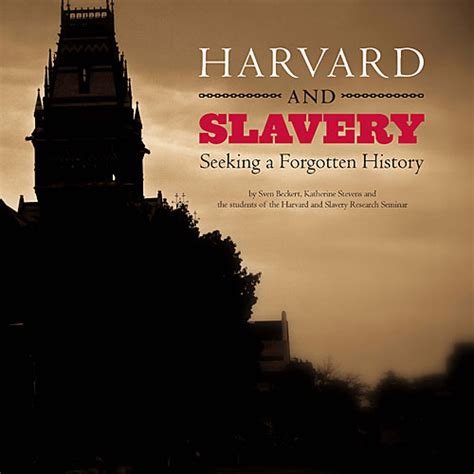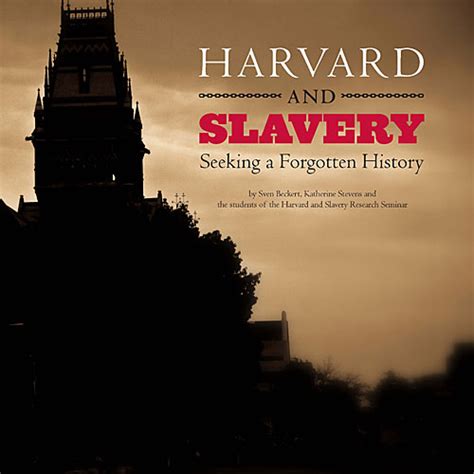
A Chicago culinary landmark, Manny’s Cafeteria & Delicatessen, famed for its traditional Jewish comfort food and a favorite haunt for politicians, celebrities, and everyday Chicagoans alike, abruptly shuttered its doors on Sunday, marking the end of a 76-year run. The closure, attributed to a confluence of economic pressures and evolving dining habits, leaves a void in the city’s gastronomic landscape and has sparked a wave of nostalgia and reminiscence among its loyal patrons.
Manny’s, located at 1141 South Jefferson Street, had been a stalwart presence in the city since its founding in 1948 by Manny Raskin. Over the decades, it evolved from a modest lunch counter into a sprawling cafeteria, renowned for its towering corned beef sandwiches, matzo ball soup, potato pancakes, and other classic Jewish deli fare. The restaurant became more than just a place to eat; it was a social hub, a place where deals were brokered, friendships were forged, and generations of families gathered. “It’s been a gathering place for people from all walks of life,” owner Ken Raskin, Manny’s grandson, told the Chicago Sun-Times.
The announcement of the closure came suddenly, catching both employees and customers off guard. While rumors of financial difficulties had circulated in recent years, few anticipated such an immediate and decisive end. According to reports, the rising costs of ingredients, labor shortages, and changing consumer preferences all contributed to the restaurant’s unsustainable business model. The COVID-19 pandemic further exacerbated these challenges, forcing Manny’s to adapt to new restrictions and grapple with decreased foot traffic. Even with efforts to implement online ordering and delivery services, the restaurant struggled to regain its pre-pandemic footing.
The legacy of Manny’s extends far beyond its menu. The cafeteria was known for its unique atmosphere, characterized by its bustling lunch crowds, its no-frills décor, and the gruff but endearing service of its long-time employees. It was a place where you could rub shoulders with a mayor, a sports star, or a construction worker, all united by their shared love of a good pastrami sandwich. Manny’s was also a cultural institution, serving as a living testament to Chicago’s rich Jewish heritage. Its walls were adorned with photographs of famous patrons, historical artifacts, and memorabilia, creating a visual tapestry of the restaurant’s storied past.
“Manny’s was more than just a restaurant; it was an institution,” said David Rosengard, a long-time customer who had been visiting Manny’s for over 40 years. “It was a place where you could always count on a good meal and a friendly face. It’s a real loss for the city.”
The closure of Manny’s marks the end of an era for Chicago’s culinary scene. It is a reminder of the challenges faced by independent restaurants in an increasingly competitive and rapidly changing industry. While other delis and Jewish eateries remain in the city, none possess the same history, character, and cultural significance as Manny’s.
The Raskin family expressed their gratitude to the restaurant’s loyal customers and dedicated employees for their support over the years. “We want to thank everyone who has been a part of the Manny’s family,” Ken Raskin said in a statement. “We are grateful for the memories and the friendships that have been made here.” While the physical doors of Manny’s may be closed, its legacy will undoubtedly live on in the hearts and minds of those who had the pleasure of experiencing its unique brand of Chicago hospitality. The family has not ruled out the possibility of revisiting the business in some form in the future, but for now, the ovens are cold, and the tables are empty.
The sudden demise of Manny’s has prompted discussions about the future of traditional delis and the challenges of preserving culinary heritage in the face of modernization and economic pressures. It serves as a cautionary tale for other beloved institutions that are struggling to adapt to the changing times. As Chicagoans mourn the loss of Manny’s, they also celebrate its remarkable history and the indelible mark it left on the city’s cultural identity. The aroma of corned beef and the lively chatter of the cafeteria may be gone, but the memories of Manny’s will continue to linger in the collective memory of Chicago for years to come.
In-Depth Analysis of Manny’s Closure
The closure of Manny’s Cafeteria & Delicatessen is not merely the loss of a restaurant; it signifies a deeper shift in the landscape of Chicago’s culinary and cultural identity. Understanding the contributing factors requires a nuanced examination of economic pressures, evolving consumer preferences, and the unique challenges faced by legacy businesses in a rapidly changing urban environment.
-
Economic Pressures: The restaurant industry, particularly independent establishments like Manny’s, operates on thin margins. Rising costs of goods, including meat, produce, and dairy, significantly impact profitability. Labor costs are another major factor, especially in a city like Chicago with a high minimum wage and increasing competition for skilled workers. Manny’s, known for its generous portions and commitment to quality ingredients, likely found it increasingly difficult to maintain its pricing structure while remaining profitable. The Yahoo News article alluded to these issues, and interviews with restaurant owners across the country consistently highlight the escalating challenges of managing expenses. Real estate costs, including rent and property taxes, also play a significant role. While Manny’s had been in its location for decades, property values in the South Loop area have increased dramatically in recent years, potentially adding to the financial strain.
-
Evolving Consumer Preferences: Dining habits have undergone a significant transformation in recent years, driven by factors such as convenience, health consciousness, and a desire for novelty. Consumers are increasingly opting for quick-service restaurants, fast-casual options, and meal delivery services. Traditional delis, with their emphasis on hearty, often calorie-laden dishes, may struggle to compete with these more modern and streamlined alternatives. Furthermore, younger generations may not have the same cultural connection to Jewish deli food as older generations, leading to a decline in demand. The rise of diverse culinary offerings in Chicago, with a plethora of ethnic restaurants and innovative dining concepts, also contributes to the challenge. Manny’s, while remaining true to its traditional roots, may not have been able to adapt quickly enough to cater to the changing tastes of a more diverse and adventurous dining public.
-
The COVID-19 Pandemic: The COVID-19 pandemic had a devastating impact on the restaurant industry, forcing closures, capacity restrictions, and significant changes in operations. Manny’s, like many other restaurants, had to navigate these challenges while also dealing with decreased foot traffic and heightened safety concerns. While the restaurant implemented online ordering and delivery services, these measures may not have been sufficient to offset the losses incurred during the pandemic. The pandemic also accelerated the trend towards takeout and delivery, further impacting the dining-in experience that was an integral part of Manny’s appeal.
-
The Legacy Business Challenge: Legacy businesses like Manny’s often face unique challenges related to succession planning, modernization, and maintaining relevance in a rapidly changing market. Transitioning ownership from one generation to the next can be complex, and the new generation may have different ideas about how to run the business. Modernizing operations, such as implementing new technologies and marketing strategies, can be costly and time-consuming. Maintaining relevance requires a delicate balance between preserving tradition and adapting to evolving consumer preferences. Manny’s, while beloved for its history and authenticity, may have struggled to navigate these challenges effectively.
-
Community Impact and Cultural Significance: The closure of Manny’s represents a significant loss for the Chicago community, particularly the Jewish community. The restaurant served as a gathering place, a cultural hub, and a symbol of Chicago’s rich culinary heritage. Its absence will be felt by generations of customers who have fond memories of sharing meals and creating traditions at Manny’s. The closure also raises concerns about the future of other legacy businesses that are struggling to survive in an increasingly competitive market. It underscores the importance of supporting local businesses and preserving the unique cultural identity of Chicago’s neighborhoods.
Expanded Context and Background Information
Manny’s Cafeteria & Delicatessen was more than just a restaurant; it was a living archive of Chicago history. Its walls were adorned with photographs of presidents, mayors, celebrities, and everyday Chicagoans, each image telling a story about the city and its people. The restaurant’s menu was a reflection of its Jewish heritage, featuring classic dishes that had been passed down through generations. The atmosphere was unpretentious and welcoming, a place where everyone felt comfortable and at home.
The restaurant’s founder, Manny Raskin, was a quintessential Chicagoan. He was a hard-working, no-nonsense businessman who built his empire from the ground up. He was also a generous and compassionate man who gave back to the community in countless ways. His legacy lives on in the restaurant’s commitment to quality, service, and community.
Manny’s was not just a place to eat; it was a place to connect. It was a place where people from all walks of life could come together and share a meal, a laugh, and a conversation. It was a place where deals were brokered, friendships were forged, and memories were made. The restaurant was a microcosm of Chicago, a city known for its diversity, its resilience, and its strong sense of community.
The closure of Manny’s marks the end of an era for Chicago. It is a reminder of the challenges faced by independent businesses in an increasingly competitive and rapidly changing world. It is also a reminder of the importance of preserving our cultural heritage and supporting the institutions that make our city unique.
Other Chicago Delis
While Manny’s is gone, there are still some Chicago Delis available in Chicago.
-
Kaufman’s Delicatessen: Founded in 1955, Kaufman’s is a North Shore institution known for its traditional Jewish deli fare, including corned beef, pastrami, and homemade rye bread.
-
Eleven City Diner: A retro-style diner in the South Loop offering a modern take on classic deli dishes, as well as breakfast and comfort food favorites.
-
The Bagel Restaurant & Deli: A family-owned deli in Lakeview that has been serving authentic Jewish cuisine since 1950.
-
Rye Deli: A modern deli in the West Loop offering a creative menu of sandwiches, salads, and small plates.
-
Jeff & Judes: Located in West Town, the deli offers traditional Jewish foods, like smoked whitefish and matzo ball soup.
Quotes from Customers and Community Members
-
“Manny’s was a Chicago institution. It was more than just a restaurant; it was a place where you could feel the history of the city,” said Sarah Goldberg, a lifelong Chicagoan and Manny’s regular. “I’m so sad to see it go.”
-
“Manny’s was a part of my family,” said Michael Rodriguez, who had been going to the restaurant since he was a child. “My grandfather used to take me there every Sunday for corned beef on rye. It’s a tradition that I’ll never forget.”
-
“Manny’s was a place where everyone was welcome,” said Maria Hernandez, a community activist. “It was a place where people from all walks of life could come together and share a meal. It will be deeply missed.”
The Future of Delis
The closure of Manny’s raises questions about the future of delis in the United States. Delis have long been a staple of American cuisine, but they are facing increasing competition from other types of restaurants and food businesses. To survive, delis need to adapt to the changing tastes of consumers and find new ways to attract customers.
Some delis are experimenting with new menu items, such as vegan and vegetarian options. Others are focusing on providing a more upscale dining experience. Still others are using technology to make it easier for customers to order food online and pick it up in person.
The future of delis is uncertain, but one thing is clear: they need to innovate to survive.
Conclusion
The closing of Manny’s Cafeteria & Delicatessen is more than just the shuttering of a business; it’s the closing of a chapter in Chicago’s rich history. The restaurant, a cultural landmark, served as a gathering place for generations, offering comfort food and a sense of community. Its demise underscores the challenges faced by legacy establishments in a rapidly evolving culinary landscape. While Manny’s may be gone, its memory will undoubtedly endure, reminding us of the importance of preserving our cultural heritage and supporting the local businesses that make our cities unique.
Frequently Asked Questions (FAQ) about the Closing of Manny’s Cafeteria & Delicatessen
1. Why did Manny’s Cafeteria & Delicatessen close?
The restaurant closed due to a combination of factors, including rising costs of ingredients, labor shortages, changing consumer preferences (evolving dining habits and trends), and the lingering effects of the COVID-19 pandemic. These factors made the business model unsustainable.
2. When did Manny’s officially close its doors?
Manny’s Cafeteria & Delicatessen closed on Sunday.
3. How long was Manny’s in business?
Manny’s was in business for 76 years, having been founded in 1948 by Manny Raskin.
4. What kind of food was Manny’s known for?
Manny’s was famous for its traditional Jewish deli fare, including towering corned beef sandwiches, matzo ball soup, potato pancakes, and other classic dishes. It was also known for its large portions and quality ingredients.
5. Will Manny’s ever reopen or consider another location in the future?
While the Raskin family expressed gratitude and acknowledged the closure, they also stated that they had not ruled out the possibility of revisiting the business in some form in the future. However, there are no immediate plans to reopen or relocate.
6. How did the COVID-19 pandemic affect Manny’s business?
The pandemic exacerbated existing challenges, forcing Manny’s to adapt to new restrictions and grapple with decreased foot traffic. While they implemented online ordering and delivery services, it was not enough to offset the losses.
7. Where was Manny’s located?
Manny’s was located at 1141 South Jefferson Street in Chicago.
8. What was the atmosphere like at Manny’s?
Manny’s had a unique, bustling, and unpretentious atmosphere. It was a place where people from all walks of life could come together and share a meal. The décor was no-frills, and the service was known to be gruff but endearing.
9. What will happen to the building that housed Manny’s?
The future of the building that housed Manny’s is currently unknown. There have been no public announcements regarding its sale or redevelopment.
10. How has the Chicago community reacted to the closure?
The Chicago community has expressed sadness and nostalgia over the closure of Manny’s. Many have shared fond memories of the restaurant and lamented the loss of a Chicago institution.
11. Was there any warning of the closure before it happened?
While there were rumors of financial difficulties in recent years, the announcement of the closure came suddenly, catching both employees and customers off guard.
12. What kind of legacy did Manny’s leave on Chicago’s culinary scene?
Manny’s left an indelible mark on Chicago’s culinary scene. It was a cultural institution that celebrated Jewish heritage and provided a gathering place for generations of Chicagoans. It served as a symbol of Chicago’s diversity and community spirit.
13. Are there any other delis in Chicago that offer a similar experience to Manny’s?
While there are other delis in Chicago, none possess the same history, character, and cultural significance as Manny’s. Some notable delis include Kaufman’s Delicatessen, Eleven City Diner, The Bagel Restaurant & Deli, Rye Deli, and Jeff & Judes.
14. Did Manny’s offer catering services?
Yes, Manny’s offered catering services for various events and occasions.
15. What were some of the unique features that distinguished Manny’s from other restaurants?
Manny’s was distinguished by its traditional Jewish deli fare, its unpretentious atmosphere, its long history, and its role as a gathering place for the Chicago community. It was also known for its unique service style and its walls adorned with photographs of famous patrons.
16. How did Manny’s try to adapt to changing consumer preferences and the pandemic?
Manny’s implemented online ordering and delivery services to adapt to changing consumer preferences and the challenges posed by the COVID-19 pandemic.
17. Was there a specific type of clientele that frequented Manny’s?
Manny’s attracted a diverse clientele, including politicians, celebrities, businesspeople, and everyday Chicagoans. It was a place where people from all walks of life could come together and share a meal.
18. What efforts are being made to preserve the memory and legacy of Manny’s?
While the physical restaurant is closed, the memories and stories of Manny’s will continue to be shared by those who frequented it. Some community members and organizations may explore ways to document and preserve the restaurant’s history and legacy.
19. How many generations of the Raskin family were involved in running Manny’s?
Three generations of the Raskin family were involved in running Manny’s, starting with Manny Raskin, followed by his son, and then his grandson, Ken Raskin.
20. What are some of the factors that contribute to the challenges faced by independent restaurants like Manny’s?
Factors include rising costs of goods and labor, increasing competition from chain restaurants and delivery services, changing consumer preferences, and the impact of economic downturns and unforeseen events like the COVID-19 pandemic.
21. What made Manny’s a Chicago “icon”? Manny’s became a Chicago icon due to its longevity (76 years), its consistent quality of food, its role as a community gathering place, and its association with Chicago’s history and culture. It was a place where locals and tourists alike could experience a taste of old-school Chicago.
22. Could the closure of Manny’s signify anything about changes in Chicago’s cultural landscape? Yes, the closure could signify a shift in Chicago’s cultural landscape, highlighting the challenges of preserving traditional institutions in the face of modernization and changing consumer tastes. It serves as a reminder of the importance of supporting local businesses and cultural heritage.
23. Has the Raskin family issued a statement regarding the closure of Manny’s? Yes, Ken Raskin, Manny’s grandson and current owner, issued a statement expressing gratitude to the restaurant’s loyal customers and dedicated employees for their support over the years.
24. What was unique about the service at Manny’s? The service at Manny’s was known for being efficient, no-frills, and sometimes gruff, but always delivered with a sense of genuine care and a desire to provide a good experience. It was part of the restaurant’s unique character.
25. Did the restaurant have any signature dishes that were particularly popular? Yes, some of the signature dishes that were particularly popular at Manny’s included the corned beef sandwich, the matzo ball soup, and the potato pancakes. These dishes were staples of the Jewish deli menu and were prepared according to traditional recipes.









